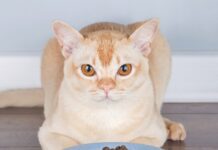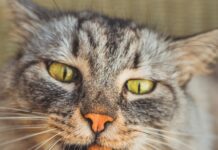Researchers at the University of Guelph (Canada) found only 13 percent of dogs and 33 percent of cats are eating conventional pet foods exclusively, a finding that could put animals at risk. While 79 percent of dogs and 90 percent of cats were offered commercial pet food, most also ate homemade meals or raw or vegan diets at least some of the time. Few pets ate conventional pet foods only. Published in BMJ’s Vet Record, the study surveyed more than 3,600 pet owners in Australia, Canada, New Zealand, the United Kingdom, and the United States.
This is the first study since 2008 to focus solely on pet-feeding practices, and it found that the practice of feeding pets unconventional foods has increased. The researchers believe that this trend is due to changes in pet owners’ own eating habits toward less processed foods being transferred to the feeding of their pets.
Alternatively, they might see kibble as dry or boring and wonder how that could be good for their pets. The problem is that they may not be paying attention to the need for a nutritionally complete and balanced diet for their pets.
Nutrient deficiencies can occur with homemade pet diets if they are not formulated appropriately. The most common involve imbalances in quantities and ratios of calcium, phosphorus, and vitamin D, and these nutritional deficiencies or imbalances could cause a variety of physical problems.




